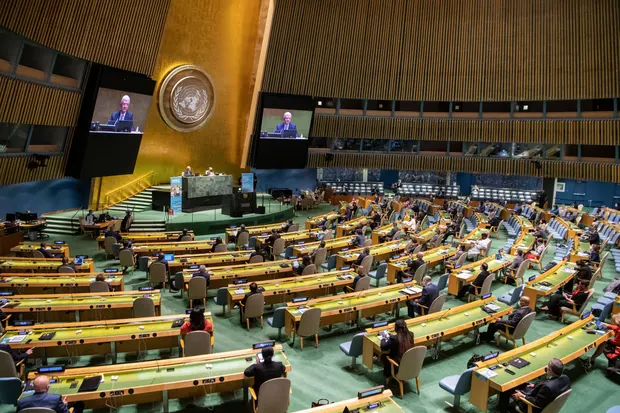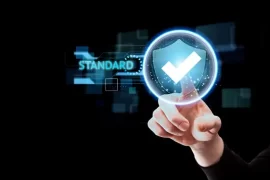We have seen a significant increase in the use of digital tools for diplomacy, due to the COVID-19 pandemic’s emphasis on social distancing and reduced in-person interaction.
This shift towards digital diplomacy has brought about new challenges and opportunities for international organizations, forums, and multilateral organizations.

Digital Overhaul
The demand for pandemic-friendly alternatives to in-person meetings, organizing, and collaborating led to a significant increase in the use of digital platforms such as Zoom.
In fact, Zoom experienced a ten-fold increase in its service usage during the pandemic.
The PC market also saw growth, with a 13% increase in unit sales in the third quarter of 2020.
The internet also saw an increase in usage, with international service increasing from 40% before the pandemic to 100% following widespread lockdowns.
Impact on Policy and Diplomacy
The increased use of technology has led to the development of new digital policies and regulations, such as the EU’s Digital Services Acts (DSA) and Digital Markets Act (DMA), and the U.S.-E.U. Trade and Technology Council (TTC).
The United Nations (UN) has also recognized the importance of digital diplomacy, with the UN’s Declaration at the commencement of UNGA75 affirming the role of diplomacy and policy in shaping the growth of the sector.
Virtual Events and Accessibility
Digital diplomacy has several potential benefits, including increased transparency, the ability to engage with a wider range of actors, and a reduced environmental impact.
It has also been shown to improve work practices and reduce costs, particularly in terms of travel budgets.
The 75th Annual United Nations General Assembly (UNGA) held in September 2020 was fully digital, allowing for world leaders to provide their remarks virtually.
This virtual transition has been praised by civil society advocates such as CIVICUS, who have advocated for continued virtual access to UN programming in the future.
Ashish Pradhan, the senior UN analyst at the International Crisis Group, noted a potential drawback of virtual meetings in a comment to The Guardian.
He stated, “part of what will be lost is that when people are speaking inside the general assembly hall, they’re speaking to other world leaders. But with these recorded speeches, they will be targeting their domestic audience.”
This highlights the risk that virtual meetings may shift the focus away from international diplomacy towards domestic politics.
Challenges
One of the challenges of digital diplomacy is the high cost of producing professional digital events and the potential for reduced efficiency in terms of diplomatic outcomes.
The increasing reliance on technology may exacerbate existing inequalities, particularly for those who lack access to technology, resources, or the necessary digital literacy skills.
Another issue is the difficulty in building trust and rapport, as well as the lack of opportunities for informal “corridor diplomacy,” which can supplement formal negotiations in the virtual environment.
Non-state actors such as civil society organisations and human rights activists may also be at risk of reprisals from states and other actors if they engage online, and there are widespread concerns about the confidentiality and security of online discussions.
Opportunities
As the world moves towards a more digitally-focused future, it is expected that hybrid meetings will become a standard tool for diplomacy.
These meetings, which can take many forms, allow for greater flexibility in engaging with a wide range of international actors.
However, it is important to consider the potential inequalities between in-person and online attendees, including differences in time zones, attention spans, and the lack of informal exchanges often found in in-person meetings.
Rather than simply replicating traditional diplomatic activities online, the goal should be to recognize and utilize the unique opportunities that technology offers to diplomatic practitioners.
By embracing new technologies and approaches, it is possible to facilitate more efficient and effective communication and collaboration in the field of diplomacy.
How will digital corporations shape the future of digital diplomacy?
Digital corporations have the potential to play a major role in shaping a more positive diplomatic world.
With their expertise in technology and innovative approaches to communication, digital corporations can help facilitate more efficient and effective communication and collaboration among diplomatic actors.
By providing tools and platforms that allow for virtual meetings, negotiations, and other diplomatic activities, digital corporations can help bridge the distance between countries and organizations, facilitating greater cooperation and understanding.
In addition, digital corporations can use their influence and resources to advocate for policies and practices that promote a more positive and collaborative diplomatic environment.
For example, they may support initiatives to increase digital literacy and access to technology, or advocate for policies that promote transparency and accountability in international affairs.
Conclusion
The incorporation of digital tools and technologies has become necessary for the survival of many sectors during the pandemic.
Those that fail to adapt and implement comprehensive digital policies risk being left behind.
The shift towards digital diplomacy has also brought about new opportunities for improved accessibility and inclusivity in international affairs.
The role of digital corporations in diplomacy will likely continue to grow in the coming years, as the use of technology becomes increasingly prevalent in international relations.
By leveraging their expertise and resources, these corporations can help create a more positive and collaborative diplomatic world.







